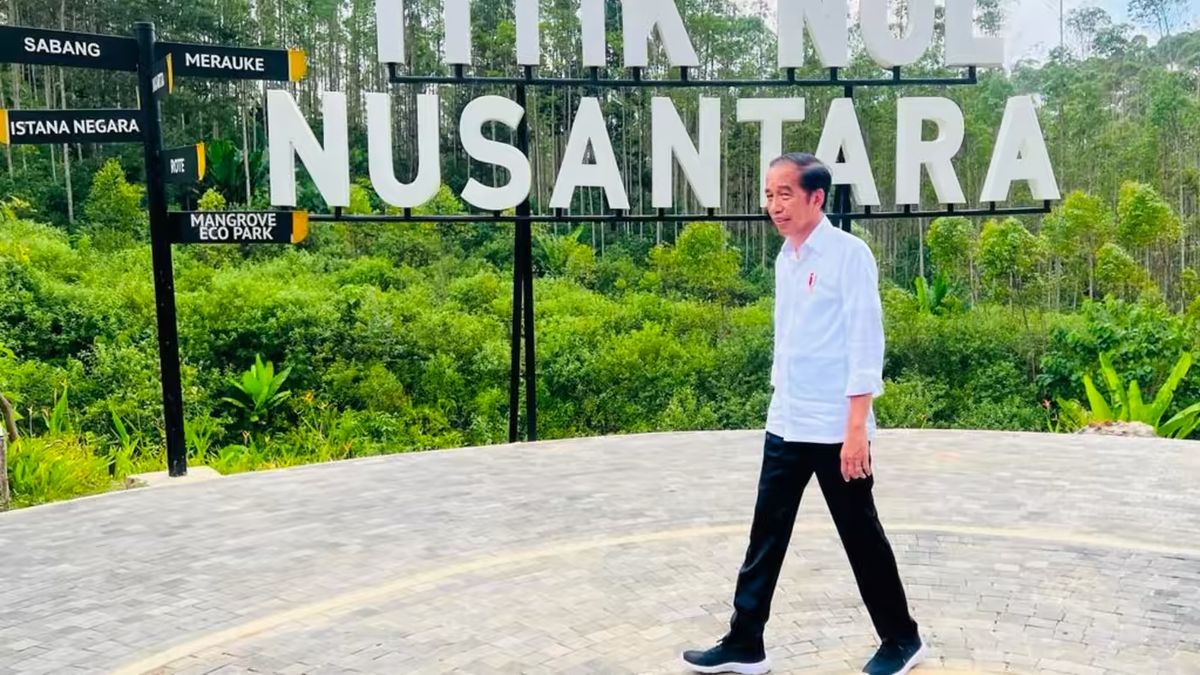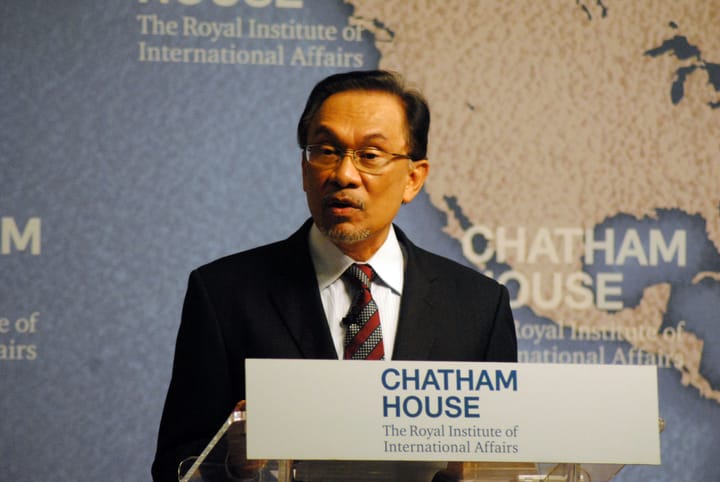Indonesia's New Man-Made Capital City: A Wrong Step in the Right Direction?
Indonesian President Joko Widodo aims to successfully shift Indonesia’s capital Jakarta, to a new, artificially created city, in the hope that the new city marks the beginning of Indonesia’s more sustainable future – but it may not be as simple as it seems.

By August 2024, Indonesian President Joko Widodo aims to complete the shift of Indonesia’s 60-year capital, Jakarta, to a new, artificially created city – ‘Nusantara’. Having been planned since 2017, Widodo and other proponents of Nusantara hope that the new city marks the beginning of Indonesia’s more sustainable future.
Nusantara: The Vision
As its name suggests (literally ‘outer island’), Nusantara will be located away from Indonesia’s mainland, instead situated in Kalimantan, on its island of East Borneo.

Designed as a greener alternative to Jakarta, Nusantara aims to emit net-zero carbon by 2045. The current schemes to achieve this goal include:
- 80% of citizens' transport will be powered by public transport, bicycles, and walking.
- Nusantara will be totally fueled by renewable energy.
- To create a self-sustaining economy, 10% of Nusantara’s land will be devoted to agriculture.
Nusantara will only be partially funded by the Indonesian government, which will cover 19% of the costs. Instead, international and domestic investors are expected to fund the remaining 81% of the expenses of Nusantara’s creation. Nusantara will be governed by the Nusantara Capital City Authority.
2017: Plans for Nusantara drafted
2019: Designs for a new sustainable city proposed
2021: Bill for the relocation of Indonesia’s capital city tabled and passed
2022: Main structures of Nusantara designed, land clearing and road construction take place
A Necessary Change…
The Indonesian government has provided numerous reasons as to why the creation of Nusantara was not only favourable, but also essential to the country’s survival.
On the surface, Nusantara offers a more central location as the administrative centre of Indonesia. In efforts to bridge the gap between Indonesia’s mainland (Java) and its other islands, Nusantara presents an opportunity to politically unite Java and Borneo, connected via interdependent government offices in both Jakarta and Nusantara. Similarly, the economic investments in Nusantara, as well as its potential to attract even more foreign direct investment, will also consolidate economic and developmental inequality between Java and Borneo.
More pressing, however, is the foreseen ‘extinction’ of Jakarta. In addition to its affinity for natural disasters, Jakarta is the fastest-sinking city, at a rate of 7-10 cm per year. By 2050, 95% of North Jakarta will be submerged entirely in the Java Sea, certainly rendering it unable to deliver on its role as Indonesia’s capital city.
For these reasons, Widodo and other supporters of Nusantara argue that its creation is a necessary precaution to save Indonesia.
…Or A Short-Sighted Decision?
Despite all the supposed benefits of Nusantara, there has been significant opposition to its establishment.
Most prominent are the voices of environmentalists who claim that, despite Nusantara’s prime goal of environmental consciousness, the creation of Nusantara will cause environmental degradation in the short run. For example, the large area of deforestation that is taking place in East Borneo has also caused the displacement of longtime indigenous populations of East Kalimantan. The Balik Tribe, who reside in an area allocated to Nusantara, have expressed concerns about their relocation and the loss of land, which Tribe Leader Sibukdin describes as the ‘biggest asset’ of their tribe. Furthermore, the urgency of Nusantara’s construction work has left no time for the government to first relocate those animals which had been displaced from their natural habitats.
Nusantara’s vision of a green utopia may not be as simple as proponents believe.
There has been significant speculation that the transition to entirely carbon-neutral technology is not as quickly achievable as the Widodo administration hopes. Because Indonesia has only just begun their transition to a more sustainable future, Nusantara critics speculate that it is likely that Nusantara will only use eco-friendly energy systems in the long run, instead opting for coal in the short run. With the bulk of Busantar’s operations happening at the beginning of its establishment (due to the high level of construction work and an influx of investments), there is the worry that such liberal uses of fossil fuels in Nusantara will not only degrade the environment, but will also set a precedent for hypocrisy.
Additionally, although Nusantara will heavily rely on public transport, the location of Nusantara on a separate island will undoubtedly cause a spike in the number of flights from one island to the other. In 2019, Indonesia was already in the top 10 countries which emitted the most carbon emissions resulting from ‘domestic operations’, and accounted for 1% of global carbon emissions, according to a report by The International Council on Clean Transportation. The relocation of its capital city to Nusantara will contrarily defy its primary focus of being a ‘green’ city, with sustainability and environmental friendliness at the forefront of its establishment.
Lastly, there is the issue of responsibility: “Why should countries that have done little to cause global warming be responsible for the damage resulting from emissions of wealthy countries?” prompts researcher Bethany Tietjan. Shifting Indonesia’s capital from Jakarta to Nusantara will simply shift the burden of climate change, and will not solve the overarching issue of the climate crisis’s impact on Indonesia. Amid rising sea levels is the exhaustion of groundwater in Jakarta. Aquifers are unable to be replenished due to the concrete jungle that is Jakarta, subsequently causing Jakarta to sink. If Nusantara wishes to avoid this same issue, it must first address the unsustainable practices of Jakarta, otherwise, it will inevitably be prone to flooding, as is the case in East Kalimantan already.
Is It Realistic?
Debates aside, how feasible is the concept of Nusantara? It is no secret that the creation of green cities is costly. Nusantara’s survival relies heavily on foreign investors, such as President Sheikh Mohamed bin Zayed Al Nahyan of the UAE, who has pledged US$10 billion in bilateral cooperation between Abu Dhabi and Nusantara, and former British Prime Minister Tony Blair. Nusantara has also seen collaboration with Hyundai Motor Group in South Korea and Australian Prime Minister Anthony Albanese. The funding for Nusantara thus far has been erratic – after Japanese company SoftBank backed out from the project, taking its US$32 billion with it, the Nusantara National Capital Authority has been sourcing finances through crowdfunding schemes, which has left potential investors uncertain about Nusantara’s future.
Another major obstacle to Nusantara’s feasibility is the imminent end of President Widodo’s administration in early 2024. The plans for Nusantara were heavily championed by Widodo, and investors fear that Widodo’s departure from office will leave Nusantara’s plans unfinished.
However, Indonesia is providing tempting incentives to entice new investors into the new city, such as generous tax cuts. The success of these policies is still uncertain, awaiting responses from investors.
Lastly, there is the question of the city’s vision for its future: will anyone want to live or work in Nusantara? Nusantara provides a vastly different experience to what Indonesians are used to, but entirely smart systems and a reliance on green technology are drastic changes to the status quo, and in itself are not necessarily infrastructures which attract new entrants into the city. Experts such as James Guild have compared Nusantara to existing smart cities such as Masdar City in Abu Dhabi, or the plethora of smart cities in China, both of which have showcased a struggle to attract long-term residents. Guild emphasises the need for Nusantara to go ‘beyond physical structures’ if it wishes to succeed among Indonesians.
The Future of Nusantara
Despite numerous hurdles along the way, plans for Nusantara persist, with no signs of withdrawal from President Joko Widodo. As doubts about Nusantara continue to grow, the future of Nusantara is riddled with uncertainty.
By Ashvini Prem
Disclaimer: The views expressed in this article do not necessarily represent those of The PublicAsian.




Comments ()